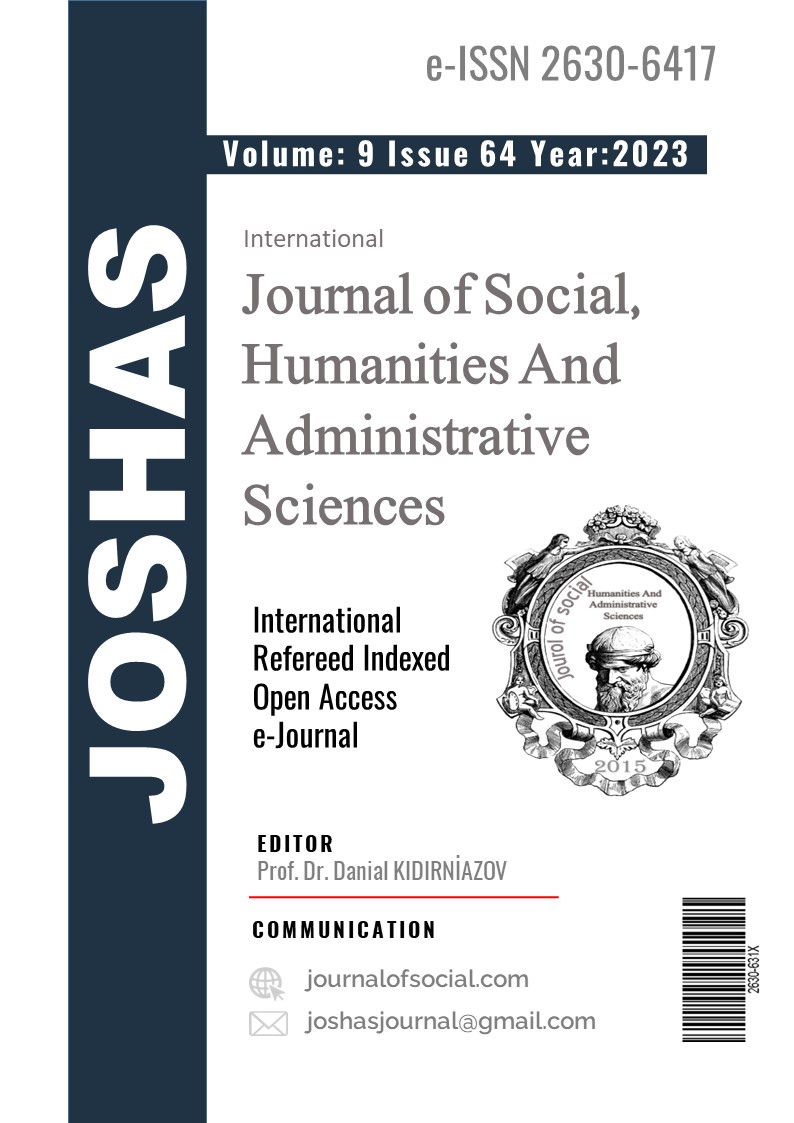Author :
Abstract
Bu çalışmada Joanne Greenberg’in Sana Gül Bahçesi Vadetmedim adlı romanında, ana karakter Deborah üzerinden işlenen ötekileştirme kavramı incelenmiştir. Eser, imgebilim ışığı altında ele alınmış olup, çalışma eklektik yöntem başlığı altında, sosyolojik ve psikanalitik eleştiri kuramları kullanılarak oluşturulmuştur. Hiçbir imgenin bir anda oluşmadığını unutmamak gerekir. Bir imgenin var olabilmesi adına mutlaka bir ‘öteki’ kavramına ihtiyaç duyulmaktadır. İncelenmiş olan eserde ana karakter, Deborah, şizofreni hastası olan genç bir kızdır ve eserde ana ‘öteki’ unsurunu oluşturmaktadır. Akıl hastalıkları ve akıl hastaları, geçmişten günümüze dek hemen hemen her toplumda hem korkulan hem de öteki olmuşlardır. Eser boyunca ana karakter, sadece psikolojik bir rahatsızlığa sahip olmasından ötürü değil aynı zamanda bir kadın ve Yahudi olması nedeniyle de toplumda ‘öteki’ olarak görülmektedir. Bunlar dolayısıyla, eserde Deborah’ın toplum içinde var olabilmek adına verdiği çaba ve bu durumun onun iç dünyasına nasıl yansıdığı işlenmektedir. Romanın yazarı olan Greenberg’in de aynı akıl hastalığından muzdarip olması ve gençliğinin bir dönemini akıl hastanesinde geçirmesi nedeniyle eserde yazarın hayatına dair birçok iz bulmak mümkündür. Eserin aynı zamanda yarı oto-biyografik olarak literatürde yer edinmiş olması da bu teoremi doğrular niteliktedir. Eser çözümlemesinin yanı sıra, çalışma boyunca, inceleme ile doğrudan ilintili olması sebebiyle, eserin yazıldığı dönemin özelliklerden, yazardan ve yazarın kendi hayatının esere nasıl yansıdığından da kısaca bahsedilmiştir.
Keywords
Abstract
In this study, the concept of othering, which is processed through the main character Deborah, in Joanne Greenberg's novel I Never Promised You a Rose Garden has been examined. The work has been discussed in the light of imagology and the work created under the title of eclectic method, using sociological and psychoanalytic criticism theories. It should not be forgotten that no image is formed all at once. In order for an image to exist, an 'other' concept is absolutely needed. In the work examined, the main character, Deborah, is a young girl with schizophrenia and constitutes the main 'other' element in the work. Mental illnesses and mental patients have been both feared and marginalized in almost every society from the past to the present. Throughout the work, she is seen as the 'other' in society, not only because she has a psychological disorder, but she is a woman and a Jew, as well. For these reasons, Deborah's efforts to exist in the society and how this situation is reflected to her inner world have been discussed in the work. Since Greenberg, the author of the novel, suffered from the same mental illness and spent a period of her youth in a mental hospital, it is possible to find many traces of the author's life in the work. The fact that the work is also semi-auto-biographical in the literature confirms this theorem. In addition to the analysis of the work, throughout the study, the characteristics of the period in which the work was written, the author and how the author's own life is reflected in the work has also been briefly mentioned, as it is directly related to the study.
